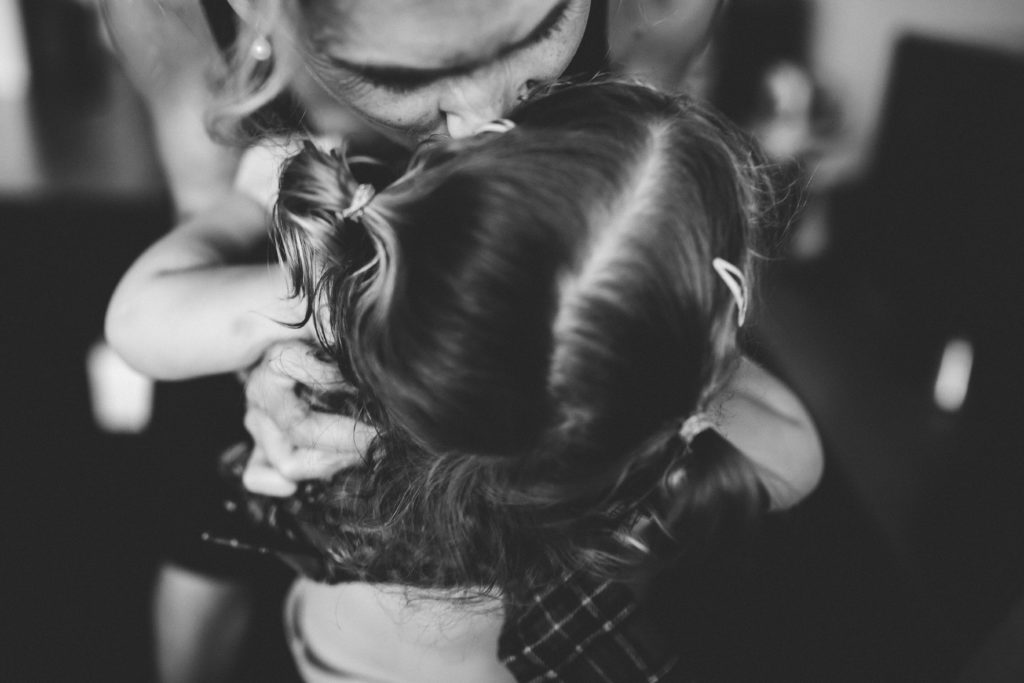Motherly love – model obsolete?
Whether it’s a partner or a job: There’s almost nothing anymore that’ll last one’s whole life long. Apart from this one thing: motherly love. But is that really true, or has it maybe never been true? Did selfless motherly love become emancipated and can now give notice and quit? And what is it really, this motherly love: a social construct, a God-given obligation or a biological dictate? To shed light on these questions, we interviewed Pasqualina Perrig-Chiello, an honorary professor at Bern University and expert on life-span developmental psychology and inter-generational family relationships.
“A mother’s love is for life. You can’t do anything about it.” This is what my mother usually says. Is this a universally valid truth or an outdated concept?
Pasqualina Perrig-Chiello: “A mother’s love is for life. However, like the mother-child relationship, it can change over the course of one’s life. It can become more intense and intimate or lead to alienation. A mother receives and passes on bonding patterns which usually play a decisive role. These early bonding experiences with our mothers and fathers stay with us all throughout our lives. If they were good ones, we acknowledge them as valuable resources. If they were bad, we might feel like they’re a serious liability. In that case, broken relationships are sometimes unavoidable.”

A pregnant woman with a big belly. (Photo: Kerry Cheah)
Motherly love is a very emotional issue. So let’s get the facts straight: What is motherly love?Pasqualina Perrig-Chiello: “Unfortunately, there is tremendous confusion about what motherly love is and should be. The political cooptation of the term is obvious, irritating and unsettling. The fact is that from a psychological standpoint, motherly love can be said to be an emotion that is both physically conditioned (higher oxytocin levels before, during and after birth) and socially learned. Depending on the historical period, social context, social environment and the mother’s personality and bonding experiences, motherly love can take on different forms and vary greatly. The fact is that toddlers are highly dependent on their mothers’ sensitivity and constant care – factors that are crucial for a child’s successful development. Motherly love will never become obsolete, but rather remain a necessity. In this context, however, motherly love does not necessarily need to come from the biological mother. Other people – the father, grandparents or the adoptive mother – can also provide this love and thereby take absolutely good care of the child. Biological mothers don’t own motherly love.”
To love and be compassionate for a lifetime: To what extent is a mother even able to avoid engaging in motherly love?
Pasqualina Perrig-Chiello: “Why should she avoid it? Every close relationship, whether it’s motherly love or love in a partnership, always implies the risk of vulnerability; this is because intimacy and closeness are involved. People who love make themselves vulnerable – that’s the price of love. But motherly love should not mean that the mother completely sacrifices her identity. In other words: A mother shouldn’t just define herself through her role as mother.”

A mother with a little girl. (Photo: Kerry Cheah)
Society and attitudes towards motherhood have changed. In what ways have these changes affected the concept of motherly love?
Pasqualina Perrig-Chiello: “There have always been good and bad mothers – now and in the past. I think the only criterion to judge whether a mother is good or bad is the child’s well-being. Social and cultural conditions, however, define the expectations about what it means to be a mother. There were times when it was acceptable to have a nurse to raise little kids. Today, people in our society have fewer and fewer children and as a result, kids receive a lot of attention. This also means that the expectations placed on mothers are very high.”
And what about fatherly love in this time of change?
Pasqualina Perrig-Chiello: “The focus is increasingly on fathers – and that’s good. By actively being involved, they can significantly reduce stress in the family and thus contribute to creating a situation in which their love and their partner’s love for the child can unfold more easily and therefore take the child’s well-being better into account. However, for this to happen a bigger investment really needs to be made – by men and by society. We are still far from an equal division of labor when it comes to men’s collaboration in household chores and in the raising of kids.”
In the past, patchwork families were mainly characterized by evil step-mothers and the absence of motherly love. Snow White comes to mind. What does motherly love mean in today’s world of “patchwork families”?
Pasqualina Perrig-Chiello: “In the past, patchwork families were a necessity, because a lot of kids used to lose their mother. Today, they tend to ‘lose’ their father, since kids usually have a lot less contact with their father after a divorce. Today, patchwork families generally have a better status in Switzerland than they used to have, since most of these families are doing well on a material level. The struggle for equal distribution of material resources and social privileges is no longer an issue. But what has remained on an emotional level is the tricky balance between investing in one’s own kids and in other people’s kids.”
Published on April 14, 2017 in the newspaper, Tages-Anzeiger.



SHARON
Motherly love seems to be an umbrella term for a number of maternal instincts but more specifically, qualities which go way beyond just feeding/looking after/raising children. The term love makes it all the more powerful. Lifelong assumes that we never lose the ability to show/give it. It can be given by anyone – fathers, caregivers, grandparents. Motherly love can also extend to friendships or caring for animals, for instance so it is not only from someone to a child. I believe that motherly love is an imprint which stays with us for life; in the experiences of how we were cared for by different people, what our own expectations are and how we return to the care back to our mothers and others, as we mature and grow independent. More profound/deeper qualities of motherly love would include understanding, patience, forgiveness and is something we would ‘work’ hard for because not only does it give back to us in the form of pure love but because it helps us to ‘connect’ with our own families, others and the world around us. Perhaps it is biological but society sometimes changes that because there are restrictions placed upon the time, methods and capacity in which we can achieve our goals. We should see motherly ‘love’ as a mantra, central to our own growth, which stays with us and to uphold in all walks of life. The connection to other people should be founded on the principles of ‘lifelong motherly love’ because we all enter the world needing to be loved and cared for. Thank you Christa for the opportunity to read & respond.
Christa Wüthrich
Thanks for sharing your thoughts, dear Sharon.